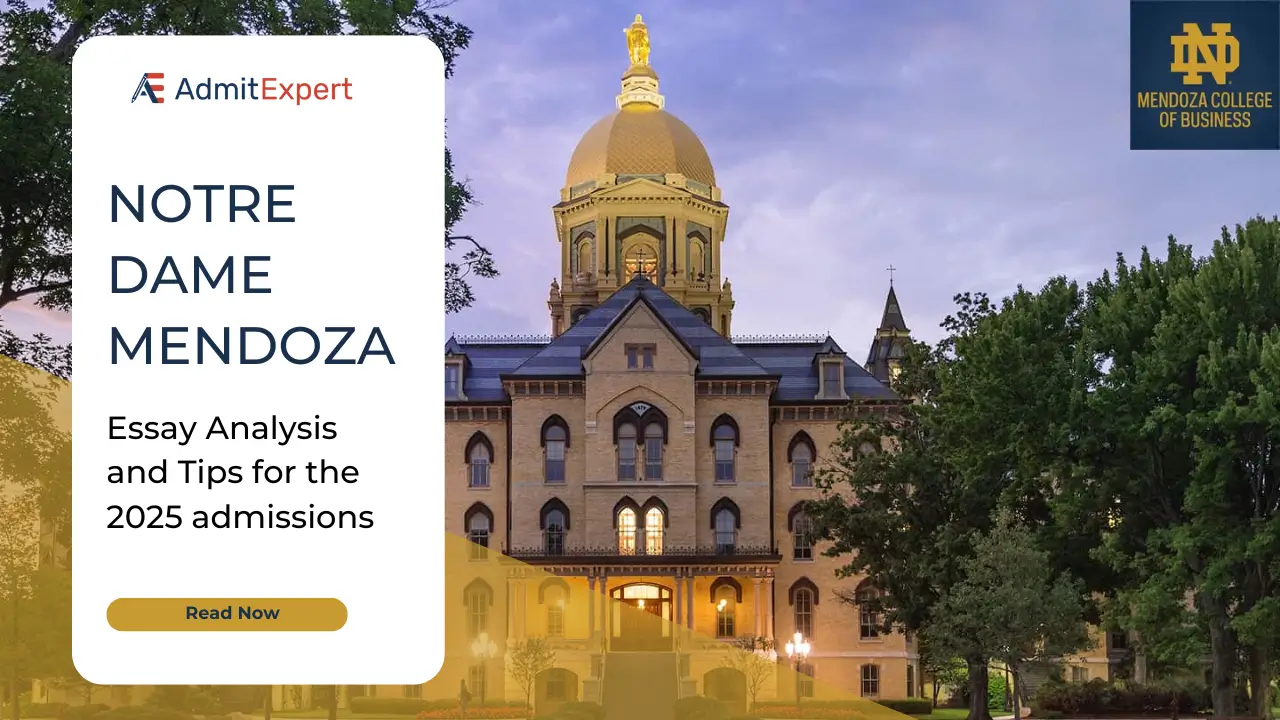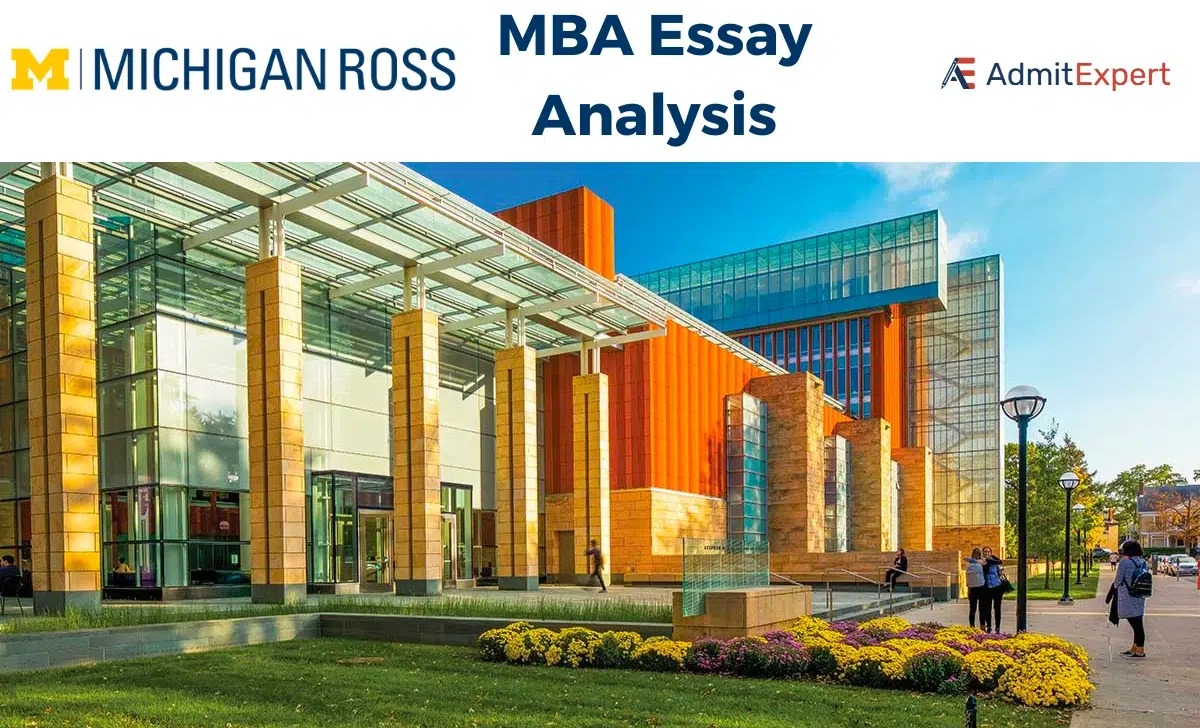Navigating the intricate process of applying for an MBA program involves more than just acing your tests and drafting a compelling personal statement. A crucial component often overlooked is the Letter of Recommendation (LOR).

In this comprehensive article, we will delve into the nuances of MBA letters of recommendation, exploring key aspects such as selecting the right recommender, crafting a tailored recommendation, and understanding school-specific requirements. Whether you’re approaching a direct supervisor or an indirect one, we’ll provide insights into making your LOR stand out and impress even the most discerning admissions committees.
Who should you ask to write a letter of recommendation?
When selecting someone to write a letter of recommendation, choose someone who can speak about your leadership, personality traits, and skills in a positive light. Business schools prefer letters from people from your professional world rather than the academic world.
That being said, the ideal person to give you a letter of recommendation is your immediate supervisor in your current or past organization.
Asking a direct supervisor for a letter of recommendation
When choosing who to ask for a letter of recommendation, it is important to choose someone who can speak about your professional skills and accomplishments. For MBA applicants, the ideal person to write a letter of recommendation is usually a supervisor.
Here are three reasons why:
- Your supervisor knows your work ethic and abilities better than anyone else. They see you day in and day out and know how hard you work and what kind of employee you are. This makes them the perfect person to speak to your strengths as an MBA candidate.
- MBA programs are looking for individuals who will be successful in the business world. And there is no one better equipped to speak to your ability to succeed than your supervisor. They have seen you in a professional setting and know how you handle yourself under pressure.
- A supervisor’s letter of recommendation will carry more weight than a letter from someone else, such as a colleague or friend. This is because admissions committees view letters from supervisors as being more objective and accurate.
Take a look at these article to know how to write a compelling essay and create a resume to impress
Asking an indirect supervisor for a letter of recommendation
While your direct supervisor is an obvious choice, you may also consider asking for a letter from an indirect supervisor.
In some cases, this may be the most appropriate option, as the recommender will be able to speak to your skills and abilities in a specific context.
This could be someone who oversaw your work on a particular project or manages a different team you worked closely with. Because they have first-hand knowledge of your skills, traits, and abilities, they can provide MBA admissions committees with valuable insights into your candidacy.
Asking for a letter of recommendation from an indirect supervisor can be a bit tricky, as it is important to clearly explain the relationship between the two individuals and why the recommender is qualified to speak to the applicant’s skills. However, this type of letter can add valuable perspective to an MBA application if done correctly.
How to assist your recommender?
Once your recommender agrees to write a letter of recommendation for your business school application, you can provide them with the following information:
- Specifics you want them to cover in the letter: professional work ethic, performance, your ability to achieve goals and follow directions
- The name of the business school and program that you are applying for
- Your career goals that align with your choice of the business school
- The due date for the application
Apart from providing this information, you should help your recommenders with specific examples to help them write the best LOR possible.
Here are 2 things you can do:
Discuss Success Stories
Business schools require strong examples to support claims made by your recommenders.
Including personal anecdotes that highlight your skills in your letters will strengthen them.
Rebekah Lewin, assistant dean of admissions and financial aid with the Simon Business School at the University of Rochester, says she received a letter that described how an applicant handled a fire alarm 20 minutes before a major event and turned the event into a success.
“It is relatable anecdotes like this that help confirm that the candidate possesses the professional skills necessary to be successful, both during the MBA and afterward in their career,” Lewin said to USNews.
Luke Pena, the MBA Admissions Director of Stanford University GSB, notes that the best letters of recommendation
“demonstrate passion and enthusiasm for your candidacy and your future success, and tell unforgettable stories about your ability and desire to make a difference in the world.”
So, discuss your experiences with your recommenders and highlight what you learned from them and how they shaped your actions and ambitions.
Make Your LOR Business school-specific
Business schools may look favorably on your MBA recommendation letter if it demonstrates a familiarity with their MBA program. By doing this, you demonstrate a serious interest in their program.
How to craft a good Letter of Recommendation?
AIGAC (Association of International Graduate Admissions Consultants) has provided some great tips for recommenders to write effective letters of recommendation.
Here are a few tips on the content of the letter of recommendation:
Recommendations ask specific questions. The answers should be complete, directly addressing the question prompt(s).
If not otherwise instructed, your recommender should seek to convey some or all of the following:
- His/her relationship with you, including how long and in what capacity you both have known each other.
- Your duties, responsibilities, assignments, projects, and achievements.
- Your knowledge, leadership personality traits, judgment, commitment, initiative, creativity, resourcefulness, or other attributes the recommender can illuminate by concrete examples.
- How does your performance compare with your peers’.
- How do you take feedback.
- How you have grown over time.
- How you have seized opportunities to make a mark.
In ‘how the candidate stands out from peers’ question, try to mention personality traits instead of skills
In the ‘constructive feedback’ question, try to mention skills rather than personality traits
Broadly speaking, the LOR should convey the impact you have had on the organization and on other people. It should include specific examples of how you accomplished your mandates and of results achieved and the specific capabilities that the recommender saw you demonstrate.
The recommender should avoid simply listing what you have done, as that information is already available to the admissions committee in other forms.
MBA Letter of Recommendation sample
Here is an example of a strong letter of recommendation for an MBA program applicant.
Dear XYZ MBA Program:
I am writing this letter to recommend Jane Doe for the MBA program at XYZ Business School. I have directly supervised Jane for the past three years at [Name of company]. In my time working with Jane I have personally witnessed her dedication and hard work for the organization. Jane is responsible for capital purchases, information technology equipment, and pediatric care equipment.
Jane’s interest and ability in learning news tasks have allowed her to be very knowledgeable in many of the procurement procedures that exist. She always volunteers for new assignments and demonstrates an ability to learn and retain information quickly and accurately. Jane is always willing to do what it takes to get the job done and truly lives up to the company’s ideals.
I believe Jane will be very successful in your MBA program and is well equipped to handle the challenges and learning experiences that XYZ business school can provide for her. The knowledge she will gain from the MBA program will serve her well and will prepare her for promotional opportunities in the near future. I believe Jane is a great candidate for the MBA program and will be very successful in your program.
Please feel free to contact me with any questions.
Sincerely,
[Your name]
Business School Specific Letters of Recommendation
Every business school has its own guidelines or questions for letters of recommendation. Here is a list of the letters of recommendation expectations from top business schools.
Harvard Business School
Harvard Business School asks your recommenders to complete this task in 2 parts.
The first part is to complete a “personal qualities and skills grid” and then answer two questions. Here are those questions:
- How do the candidate’s performance, potential, background, or personal qualities compare to those of other well-qualified individuals in similar roles? Please provide specific examples. (300 words)
- Please describe the most important piece of constructive feedback you have given the applicant. Please detail the circumstances and the applicant’s response. (250 words)
Did you know that Harvard Business School is an ‘M7 business school‘ as well as an Ivy League business school.
Stanford Graduate School of Business
You need two letters of recommendation or as Stanford calls them ‘letters of reference’ as part of your MBA application. One reference from your current direct supervisor (or next best alternative) at work, and one reference from someone else who has supervised you.
Both of your recommenders will be asked to assess you on some character traits and competencies that contribute to successful leadership and to answer three questions.
There may be a situation that prevents you from providing a reference from your current direct supervisor. For example, you may:
- Be self-employed
- Be working for a family business in which a family member is your supervisor
- Have begun a new position where your direct supervisor does not know you well
- Have not notified your direct supervisor that you are applying to business school
- Be a student
If you are unable to provide a letter from your current direct supervisor, use your judgment in finding an alternative source for your recommendation — a previous supervisor, an indirect manager, a client, a member of your board of directors, or any other individual who supervises your work.
If you don’t have full-time work experience, you may use a direct supervisor from a summer, part-time, or internship position. Alternatively, you may ask someone who managed you in an extracurricular, research, volunteer, or community activity.
Wharton
Just like most business schools, Wharton’s MBA program requires two letters of recommendation in your application.
- Please provide example(s) that illustrate why you believe this candidate will find success in the Wharton MBA classroom. (Word count: 300)
- Please provide example(s) that illustrate why you believe this candidate will find success throughout their career. (Word count: 300)
Wharton requires two letters of recommendation from individuals who are well acquainted with your performance in a work setting, preferably from a current or former supervisor.
The title or position of the recommender is not as important as his/her ability to comment knowledgeably and specifically about you. Submit recommendations from people who can speak directly about your aptitudes and capabilities.
Chicago Booth School of Business
You’re required to submit two letters of recommendation to the Booth School of Business MBA application.
We ask recommenders to complete a skills assessment for each applicant and to submit a letter answering the following questions:
- How do the applicant’s performance, potential, background, or personal qualities compare with those of other well-qualified individuals in similar roles? Please provide specific examples.
- Please describe the most important piece of constructive feedback you have given the applicant. Please detail the circumstances and the applicant’s response.
One letter of recommendation should be written by a current or former supervisor, which they prefer to be done by your current supervisor. If your current supervisor cannot write a letter for you, Booth asks you to explain why in the optional essay.
Your second letter can be from an individual beyond your immediate work environment. Booth accepts anyone as long as they offer further insights from your first recommender. For instance, this can include people you worked with within a different organization, on a volunteer project, or during an extracurricular activity.
Kellogg School of Management
You will need to submit two letters of recommendation when you apply to Kellogg School of Management.
Ideally, one letter should come from a current supervisor or manager. The second should come from someone who can evaluate your professional performance and your managerial/leadership potential (e.g., former supervisor, previous employer, client).
Both recommenders have to answer 3 prompts within the word limit:
- Kellogg has a diverse student body and values students who are inclusive and encouraging of others with differing perspectives and backgrounds. Please tell us about a time when you witnessed the candidate living these values. (300 words)
- How does the candidate’s performance compare to those of other well-qualified individuals in similar roles? Please provide specific examples. (300 words)
- Describe the most important piece of constructive feedback you have given the candidate. Please detail the circumstances and the applicant’s response. (250 words)
Columbia Business School
Columbia requires you to submit two letters of recommendation when applying to their full-time MBA program but only one if you apply to their Deferred Enrollment program.
Here are those two questions:
- How do the candidate’s performance, potential, background, or personal qualities compare to those of other well-qualified individuals in similar roles? Please provide specific examples.
- Please describe the most important piece of constructive feedback you have given the applicant. Please detail the circumstances and the applicant’s response.
For the Deferred Enrollment program, Columbia asks your recommender to “please share how you feel the applicant will contribute to the Columbia Business School classroom and community.”
One recommendation should be your current supervisor. However, this only applies if you have worked for them for over six months. Columbia will accept a previous supervisor’s letter if you only recently began working for your current supervisor.
The second letter should be from a previous supervisor or a colleague who held a higher position than yours.
If you are reapplying to business school, you need to submit a Columbia MBA recommendation letter different from those submitted in your previous application.
MIT Sloan School of Management
MIT Sloan asks you to provide one letter of recommendation and two references.
Here are a few guidelines:
- A recommendation from a professional contact is preferred, ideally a manager or supervisor.
- MIT Sloan does not accept recommendations from family members.
- Your letter of recommendation must be received by the deadline date for the round you are applying in
MIT Sloan utilizes the GMAC Common Letter of Recommendation form.
What is the GMAC Common Letter of Recommendation form?
The Graduate Management Admission Council, the makers of the GMAT exam, collaborated with a group of leading business schools to help develop a new set of “common” questions, with one goal in mind: to make requesting letters of recommendation easier for business school applications.
What are the components of the common LOR?
The Common LOR form has three sections:
Section 1: Personal information about the letter writer. This is where the recommender identifies themselves and their relationship to you.
Section 2: Leadership assessment grid of candidate. This section is divided into five categories, each identified for the way they help assess the candidate against 16 traits and competencies—like influence, achievement, and cognitive abilities.
Section 3: Letter of recommendation questions. This essay-style section provides three prompts that must be answered in 500 words or less.
- Please provide a brief description of your interaction with the applicant and, if applicable, the applicant’s role in your organization. (Recommended word count: 50 words).
- How does the performance of the applicant compare to that of other well-qualified individuals in similar roles? (e.g., what are the applicant’s principal strengths?) (Recommended word count: 500 words).
- Describe the most important piece of constructive feedback you have given the applicant. Please detail the circumstances and the applicant’s response. (Recommended word count: 500 words).
There is a final open-ended question, “Is there anything else we should know?” that is optional and has no word count limit.
How to complete and submit common LOR?
Once you’ve verified that you’re applying to a participating Common LOR school, refer to the steps below to streamline the experience for your recommender:
- Download the Common Letter of Recommendation Template (PDF) and email it to all recommenders once they’ve agreed to advocate for you in a letter of recommendation for business school.
- Provide your target schools with the name and email address of each recommender.
- Advise your recommenders to be on the lookout for the official invitation email from the school and follow the school’s instructions for submitting the recommendation.
Final Thoughts
Getting a good letter of recommendation is essential for any business school application. The best letters come from people who can speak about your skills and achievements in an objective manner. By taking the steps mentioned in this article, you can increase your chances of securing powerful letters of recommendation that will help you stand out in the MBA admissions process.
Our team at Admit Expert can help you get the most out of your MBA application so that you can maximize your chances of getting into the business school of your dreams. Schedule a free consultation today to learn more about how we can help you get admitted to the MBA program of your choice.




